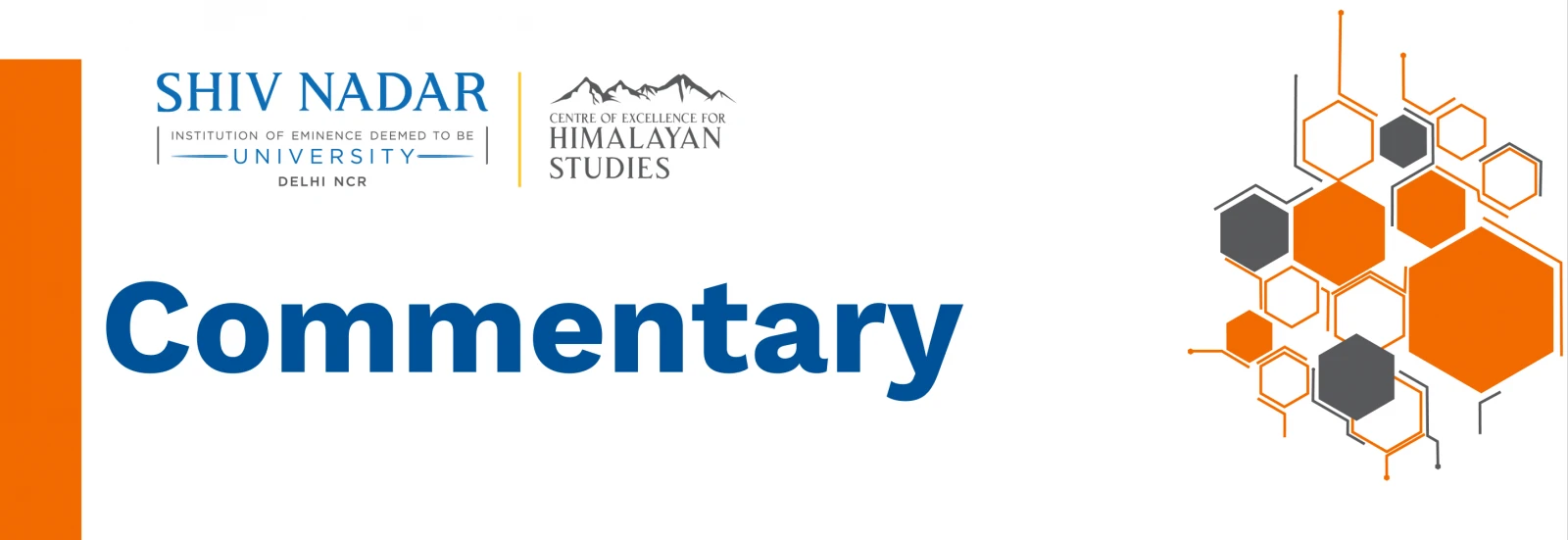
20 March 2024
China Seeks Economic Panacea Through Tighter Political Control
Chinese Premier Li Qiang presented his first government report on March 5 at China’s ongoing annual legislative session of the National People’s Congress, one half of the country’s rubber-stamp parliament. While the Party-state has attempted to present a positive picture of economic situation and to send out a message of policy continuity through the media and orchestrated events, the problems lie in the realm of what is not stated.
Unprecedented unemployment among urban youth between 16 and 24 years of age, local government debt, a struggling real estate market, and sluggish domestic demand are some of the economic issues facing the Chinese leadership as it attempts to transition to a new growth model with less reliance on investment in infrastructure and the property market.
Greater Control and Less Reforms
Rather than embarking on the required structural reforms, however, the Communist Party of China (CPC) leadership under General Secretary Xi Jinping has in typical fashion responded with propaganda and by expanding Party control over state functions. It has launched a country-wide education campaign to reinforce Xi’s policy lines and ideology and attempted to manage narratives to push positive messages on the economy.
The Third Plenum of the 20th Central Committee of the CPC did not take place as it normally should have at the end of last year. It is this plenum of a central committee that traditionally provides the blueprint for economic policy and reforms in China. In yet another tradition-breaking move, the premier, Li Qiang, will no longer hold a press conference at the end of the “two sessions” of the Chinese parliament. Together, these developments indicate the leadership’s diminishing confidence in laying out for public discussion its economic thinking and policies.
In November last year, the CPC had expanded its direct control over financial sector by establishing a new body, the Central Financial Work Commission, which took over functions of overseeing financial sector from the State Council, thereby further reducing the role of state bodies in economic governance.
Anti-corruption Campaign
Another striking feature of the CPC response to China’s economic crisis is further intensification of the anti-corruption campaign. Since 2020, it has increasingly used the anti-corruption watchdog, the Central Commission for Discipline Inspection (CCDI), to try and address financial instability due to reckless credit lending by banks, local government debt, and corruption in state-owned enterprises (SoEs) and financial regulatory bodies.
In Xi’s first and second terms as General Secretary of the CPC, it was cadres from the political and legal apparatus – which manages China’s police, courts, and procuratorates – and the military that were predominantly targeted. Current trends suggest an additional group being targeted, namely, Party-appointed officials in ratings agencies, insurance companies, policy banks, state-owned enterprises (SoEs), and asset management companies.
The number of such officials under investigation has gone up rapidly after the 20th Party Congress in October 2022 at which Xi Jinping was confirmed as General Secretary for a third term. Nearly 300 such cadres have been investigated compared to 440 cadres investigated during Xi’s first term from 2012 to 2017. The figures are even more significant when contrasted to the that in Xi’s second term from 2018 to 2022 when the CCDI probed 111 officials.
In the banking sector, more than three dozen senior executives and officials of the country’s biggest banks, namely Bank of China (BoC), China Construction Bank, Agricultural Bank of China, and the Industrial and Commercial Bank of China (ICBC) have been investigated. Some prominent examples include a former senior official at the ICBC, Zhang Hongli, and the former head of the BoC, Liu Liange. The list of fallen officials also includes Li Xiaopeng and Tang Shuangning who had both served as Party Secretary and Chairman of the Everbright Group, also a Fortune Global 500 company.
To give a sense of the scale and importance of these actions, note that each of the four Chinese banks mentioned is larger than the State Bank of India – India’s largest bank – by several orders of magnitude across revenue, net income and total assets among other indicators.
The CCDI has also probed some 80 senior officials from other SoEs since the 20th Party Congress covering a wide range from globally-ranked energy majors like the China National Petroleum Corporation, Sinopec and PetroChina to those in the railway, aviation, shipping, telecom, and electricity sectors. These include officials from the China Railway Qinghai-Tibet Group Company as well as Party Committee members in the China National Nuclear Corporation. Central, provincial and sub-provincial level officials have all come under the net with trials being held across the length and breadth of the country.
Conclusion
The expansion of Xi’s anti-corruption campaign into the financial and other economic sectors is aimed at targeting the institutions and positions where power and resources lie so as to prevent dangers to economic stability. The urgency is underscored by Premier Li in his work report when he says, “We must tighten up financial and economic discipline and intensify oversight on accounting. Prestige and vanity projects and wasteful and excessive spending will be strictly prohibited.”
The objective is also to strengthen the CPC’s control. The fact that several of the officials under investigation are also members or heads of Party committees – the nucleus of decision-making and source of the CPC’s direct control over these institutions – underlines the political significance of the campaign. It also suggests that greater Party control is likely to be a defining feature of the Chinese economy for the foreseeable future. This is a reality that must be acknowledged and factored into approaches and policies that countries frame towards China.
This is a slightly modified version of the article originally published as Devendra Kumar and Jabin T. Jacob. 2024. ‘Making sense of China’s anti-corruption agenda’. Hindustan Times. 14 March. p.14.
Share this on: